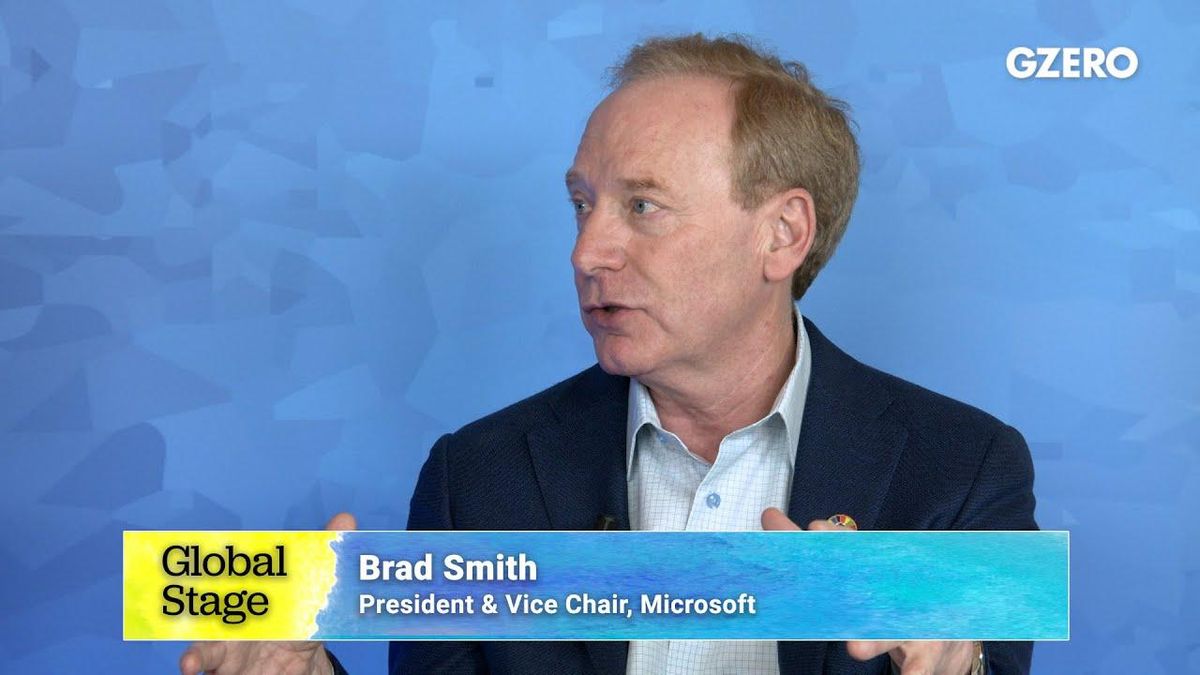Weeks before Russia invaded Ukraine, Microsoft was already helping the Ukrainians defend their cyberspace against Russian hackers, for instance by moving the government's physical servers into the cloud to avoid destruction by Russian missiles.
In the virtual world, like on the battlefield, "you've gotta disperse your defensive assets so they're not vulnerable to a single attack," Microsoft President Brad Smith says in a Global Stage livestream discussion at the World Economic Forum in Davos, "Crisis in a digital world," hosted by GZERO in partnership with Microsoft.
Then came defending Ukraine against Russian cyberattacks.
In cyberspace, Smith says the war really started on February 23, a day before Russia's land invasion, when Microsoft noticed some 300 coordinated attacks trying to take down Ukrainian government websites and banks via Microsoft's own data centers in Seattle.
Still, it worked. Why? Because "so far in this war, defense has proven to be stronger [than] offense, frankly, in almost every category, but especially when it comes to cyberspace."
Watch more of this Global Stage discussion: "Crisis in a digital world"
- What We're Watching: Cyberwarfare in Ukraine, Imran Khan in ... ›
- Why hasn't Ukraine suffered a debilitating Russian cyberattack ... ›
- Podcast: Cyber threats in Ukraine and beyond - GZERO Media ›
- How Russian cyberwarfare could impact Ukraine & NATO response ... ›
- A different Davos amid geopolitical conflicts and security issues - GZERO Media ›
- Microsoft president Brad Smith has a plan to meet the UN's goals - GZERO Media ›
- Russia freezing out Ukrainian civilians because it can't beat military, says Microsoft's Brad Smith - GZERO Media ›
- Tech innovation can outpace cyber threats, says Microsoft's Brad Smith - GZERO Media ›
- The transformative potential of artificial intelligence - GZERO Media ›
- The convergence of geopolitics and cyberspace - GZERO Media ›

















